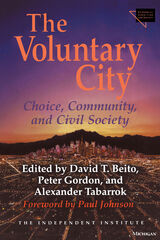5 start with V start with V

In the late 1980s, most of the world still associated Vietnam with resistance and war, hardship, refugees, and a mismanaged planned economy. During the 1990s, by contrast, major countries began to see Vietnam as both a potential partner and a strategically significant actor—particularly in the competition between the United States and an emerging China—and international investors began to see Vietnam as a land of opportunity.
Vietnam remains a Leninist party-state ruled by the Communist Party of Vietnam that has reconciled the supposedly irreconcilable: a one-party system and a market-based economy linked to global value chains. For the Party stability is crucial and, recently, increasing economic openness has been combined with growing political control and repression.
This book, undertaken by scholars from Vietnam, North America, and Europe, focuses on how the country’s governance shapes its politics, economy, social development, and relations with the outside world, as well as on the reforms required if Vietnam is to become a sustainable and modern high-income nation in the coming decades.
Despite the challenges, including systemic ones, the authors remain optimistic about Vietnam’s future, noting the evident vitality of a determined society.

In the late 1980s, most of the world still associated Vietnam with resistance and war, hardship, refugees, and a mismanaged planned economy. During the 1990s, by contrast, major countries began to see Vietnam as both a potential partner and a strategically significant actor—particularly in the competition between the United States and an emerging China—and international investors began to see Vietnam as a land of opportunity.
Vietnam remains a Leninist party-state ruled by the Communist Party of Vietnam that has reconciled the supposedly irreconcilable: a one-party system and a market-based economy linked to global value chains. For the Party stability is crucial and, recently, increasing economic openness has been combined with growing political control and repression.
This book, undertaken by scholars from Vietnam, North America, and Europe, focuses on how the country’s governance shapes its politics, economy, social development, and relations with the outside world, as well as on the reforms required if Vietnam is to become a sustainable and modern high-income nation in the coming decades.
Despite the challenges, including systemic ones, the authors remain optimistic about Vietnam’s future, noting the evident vitality of a determined society.

A robust historical case study that demonstrates how village development became central to the rhetoric and practice of statecraft in rural Ghana.
Combining oral histories with decades of archival material, Village Work formulates a sweeping history of twentieth-century statecraft that centers on the daily work of rural people, local officials, and family networks, rather than on the national governments and large-scale plans that often dominate development stories. Wiemers shows that developmentalism was not simply created by governments and imposed on the governed; instead, it was jointly constructed through interactions between them.
The book contributes to the historiographies of development and statecraft in Africa and the Global South by
- emphasizing the piecemeal, contingent, and largely improvised ways both development and the state are comprised and experienced
- providing new entry points into longstanding discussions about developmental power and discourse
- unsettling common ideas about how and by whom states are made
- exposing the importance of unpaid labor in mediating relationships between governments and the governed
- showing how state engagement could both exacerbate and disrupt inequities
Despite massive changes in twentieth-century political structures—the imposition and destruction of colonial rule, nationalist plans for pan-African solidarity and modernization, multiple military coups, and the rise of neoliberal austerity policies—unremunerated labor and demonstrations of local leadership have remained central tools by which rural Ghanaians have interacted with the state. Grounding its analysis of statecraft in decades of daily negotiations over budgets and bureaucracy, the book tells the stories of developers who decided how and where projects would be sited, of constituents who performed labor, and of a chief and his large cadre of educated children who met and shaped demands for local leaders. For a variety of actors, invoking “the village” became a convenient way to allocate or attract limited resources, to highlight or downplay struggles over power, and to forge national and international networks.


READERS
Browse our collection.
PUBLISHERS
See BiblioVault's publisher services.
STUDENT SERVICES
Files for college accessibility offices.
UChicago Accessibility Resources
home | accessibility | search | about | contact us
BiblioVault ® 2001 - 2024
The University of Chicago Press









